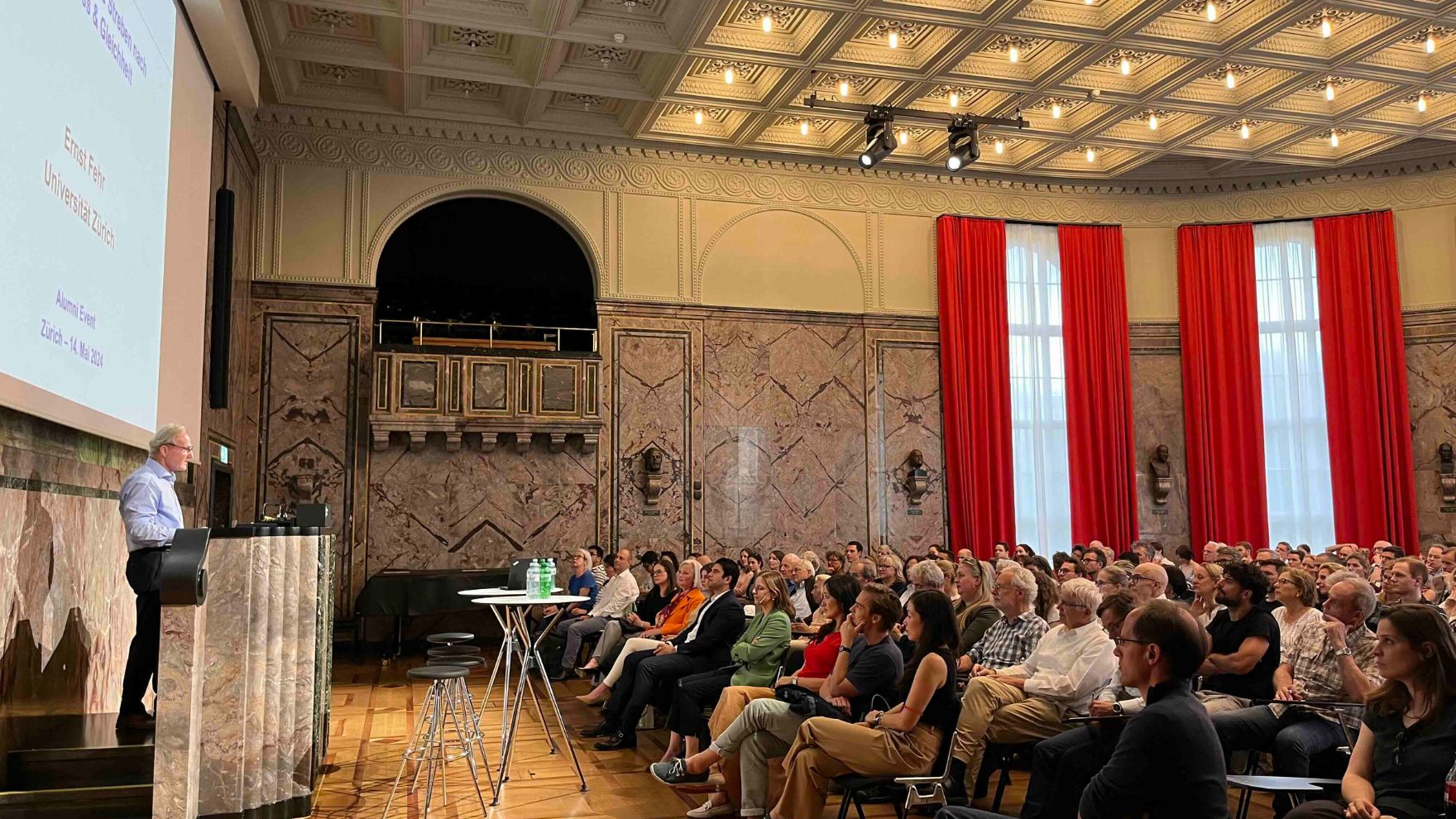Navigation auf uzh.ch
Navigation auf uzh.ch
Interdisciplinarity in action: alumni in the fields of sociology, political science and economics filled the auditorium at the University of Zurich to capacity to listen to Professor Ernst Fehr’s lecture on the roots of egalitarian aspirations. Afterwards, young politicians Ronja Jansen and Matthias Müller discussed the political implications of his findings.
(14).jpg)
In his lecture, Ernst Fehr identified the egalitarian roots of humanity as far back as hunter-gatherer societies, in which people hunted cooperatively and shared food in an egalitarian way – even with sick and injured members of the group. He described social norms aimed at power seekers, which allowed women to make fun of over-ambitious members of the group without suffering any consequences.
The Department of Economics, and Ernst Fehr’s research area in particular, can draw on a large pool of empirical and experimental data on the topic of fairness preferences. His lecture was prefaced by the realization that most people assume that the majority are selfish. This – false – basic assumption even has an impact on how transfer payments and taxes are structured. His research identifies three groups of roughly equal size: the classic egoists, inequality-averse individuals, who have an aversion to advantageous and disadvantageous inequality, and the altruists, who only have an aversion to advantageous inequality but would never reduce others’ income in order to increase equality.
So if two-thirds of the population is inequality-averse, why are redistribution initiatives repeatedly rejected at the ballot box? Fehr presented a study showing that altruists also have selfish motives and consider the cost of initiatives. And not every inequality is perceived as unfair. Studies show, for example, that external inequality and inequality arising through no fault of one’s own – due to factors such as the birth lottery and illness – justify transfer payments as far as many people are concerned. If inequality is seen as self-inflicted, however, there is less willingness to mitigate it.
The panel discussion saw the former president of the Swiss Young Socialists (JUSOs), Ronja Jansen, address the question of why the image of humanity differs so greatly from reality, i.e. why there is much less aversion to inequality in society than is often assumed. She believes that the root of this lies in the fact that the idea of the ‘selfish individual’ can be used to justify power.
Matthias Müller (Young Liberals of Switzerland, FDP) examined the changing nature of the definitions of fairness, equality and justice and how fairness considerations should be integrated into the political debate around raising the retirement age, e.g. by differentiating between years worked and type of work (physical versus intellectual).
Participants in the ensuing lively discussion analyzed past and upcoming political votes in light of the findings from Ernst Fehr’s presentation. Audience contributions on the composition of the three groups, the potential for an inheritance tax to reduce inequality, and findings from primate behavioral research rounded off this fascinating evening.
Presentation by Ernst Fehr, Professor of Economics
Fehr’s discussion with: